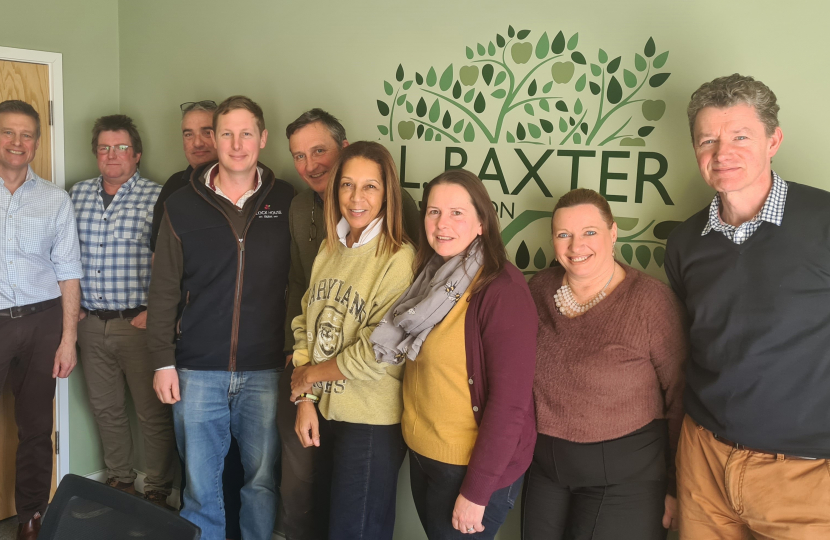
There’s a real torsion in the expression ‘A Perfect Storm’ – I think it is in the uncomfortable link between an ‘aspirational adjective’ and a ‘noun to avoid’. But a perfect storm is precisely what our farmers in Maidstone & The Weald are experiencing at the moment, as disparate forces converge to the mutual detriment of producers and consumers.
I met with a strong group of farmers recently, together with representatives from the National Farmers Union, around a board room table at Amsbury Farm in Hunton in the Low Weald. I was there to learn the detail of the issues and, critically, find out what they believe could be done to reverse what presently appears to be an unsustainable direction of travel for many in their sector.
The main barriers to profitablilty include dramatically increased production costs, a dysfunctional seasonal worker scheme, certain very large supermarkets abusing their powerful buying positions, and some post-Brexit conditions creating an unlevel playing field which is favouring overseas competition.
All of this sits on top of other pressures such as the cost of rural crime (see my last column on this issue here) and the uncertainties underlying a new government payment scheme (ELMS) that’s replacing the scheme that was in use under the old EU rules.
My farmers explained some of the fixes that could be put in place – and they are not dependent on large funding requests; what is sought are rule changes to create competitive fairness in production methods, better governance being imposed upon retailer buying practices, and longer lead times in seasonal worker programmes allowing farmers the ability to properly plan ahead.
The outcome of our meeting was to put together a clear and concise wish list, which if enacted will go a long way to redressing the huge imbalance in trading conditions our farmers are having to tackle. To that end I have already engaged with Mark Spencer, the Minister of State for Food, Farming and Fisheries, who has agreed to come to my constituency and hear for himself the core problems and potential solutions needed to restore sustainability to the horticultural industry in Kent.
Mark is a farmer himself and his family and educational background come firmly from the agricultural sector. I believe, therefore, that he is the right person to take this up from a central government perspective. I am also in direct contact with my colleague Thérèse Coffey, the Secretary of State at DEFRA. She is not unfamiliar with my constituency and the county; having spoken at a rural business forum I organised in Yalding in 2018, and as guest speaker at the Kent County Show when she was Minister of State.
Farming is absolutely key to the prosperity of thousands of people in Maidstone & The Weald, and right across Kent. On a national level too the health of the sector is a key factor in our food security programme. The reasons behind each of these issues could have been avoided which is why I use the word calamitous. The fact that they are all here at the same time is a confluence for sure. This is therefore a massive priority for me and my team, and I have pledged my full support in helping to turn this situation around.


